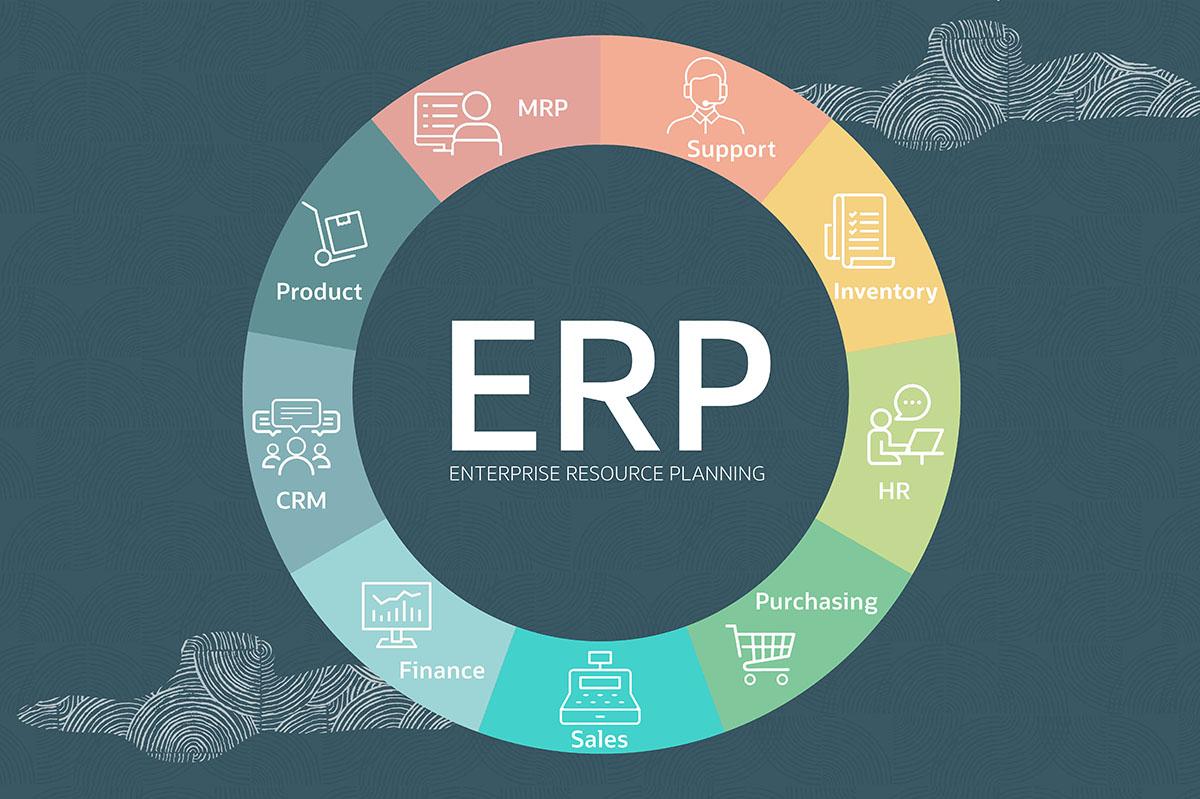Why Erp Is Important For Your Business
ERP helps simplify complex operations, increase efficiency, reduce costs, and optimize your business performance. The benefits of implementing an ERP system in an organization will also improve day-to-day business activities by streamlining business processes, making it easier and more efficient for companies to collect data no matter what department they work in. Implementing ERP will thereby optimize the flow of information within the workforce and increase the efficiency of day-to-day operations.
By reducing administrative duplication, simplifying processes such as order processing and production planning, ERP systems allow staff to focus on more important tasks and effectively manage growing business volumes. ERP systems can help businesses make better use of time and increase productivity by eliminating duplication and manual input.
Rich applications such as ERP systems can help construction companies with project management and inventory tracking, as well as accounting and service management. With ERP systems at your disposal, you can speed up customer acquisition, eliminate repetitive back-office processes, consolidate data more efficiently, and improve team communication. Cloud ERP systems are well equipped with a wide range of business applications that provide forecasts, comparisons, reports, and graphs to enable team members to make better business decisions.
An ERP system can simplify your entire organization and gather all data in one place, enabling more accurate reporting and a more efficient data-driven collaborative work environment. Today, ERP systems are being integrated into all areas and functions within an organization with the primary goal of helping leaders and managers better understand all the moving parts of their operations, identify opportunities and make more informed decisions that will ultimately affect future success and profitability. your business.
Simply put, ERP systems can provide seamless integration between core business processes such as HR, manufacturing, sales, finance, inventory management, and marketing to improve profitability. ERP is a business process management software that manages and integrates daily business operations such as finance, purchasing, manufacturing, projects, human resources, and other activities. The main advantage of ERP is the management of the company’s main processes in a single tool.
ERP technologies can be used by organizations to standardize complex business processes and ensure consistent and structured output. ERP solutions enable organizations to streamline and automate their processes, which can lead to greater accuracy in receiving orders and more efficient operations overall. For business units, ERP software can automate many error-prone tasks such as invoice reconciliation, customer billing, and order processing, while also providing the information teams need to work more efficiently.
Good ERP software can be tailored to the unique needs of each company. Designed to meet the needs of an individual company, ERP software pays big dividends, making these systems a vital tool for companies of all industries and sizes.
Whether you’re a small business owner just starting out, or a large corporation looking to streamline business processes, your business can benefit from ERP software. With effective ERP software, business owners and executives can automate and simplify tedious back-office tasks, help employees be more productive and successful, and gain real-time visibility into the inner workings of their operations.
With ERP software, you can always access important data and information for all your business units on one platform. Shared Information A key advantage of ERP software is that it provides different parts of the company with the same snapshot of important business information.
ERP applications collect information about the activities and status of various departments, making this information available to other parties where it can be productively used. Because ERP documents and archives all information entered by users, it is a great business intelligence tool.
However, ERP can identify problems in your operations and help you find better ways to run your business. Because ERP is comprehensive, it can help a business understand how a change or issue with a process in one department affects the rest of the business. While an ERP system meets all accounting requirements, it can also help manage a wider range of financial activities such as budgeting, transaction logging, expense management, asset and collection oversight, and cash flow accounting.
In its early days, ERP focused on organizing data and streamlining processes related to back office areas such as inventory management, order fulfillment, purchasing, human resources, accounting, IT, manufacturing, planning and scheduling, and other related areas. ERP (Enterprise Resource Planning) is a business management software that allows an organization to use a set of integrated applications to simplify and automate processes, enabling a smarter, more accurate and efficient operation. ERP software, or enterprise resource planning, allows small businesses to replace multiple departmental information systems and databases with programs that work together and use a single database.
Many ERP software applications are important to companies because they help them manage resource planning by integrating all the processes required to complete them into a single system. The functionality of ERP applications may vary depending on the program used, but all of these systems allow you to share and modify data, as well as improve security and access. From coordinating with manufacturers and distributors to tracking shipments and managing inventory, ERP systems help ensure that you, your customers and business partners are satisfied.
ERP facilitates the free flow of information within an organization and leads to greater synergy between different business areas, increasing efficiency as processes are simplified and information easily accessible to those who need it, and reducing costs associated with outdated and inefficient technologies. cost. ERP provides a comprehensive view of core business processes and simplifies systems through superior resource monitoring and reporting, database management and data sharing, and an overall improved information system. Improve Process Efficiency ERP platforms eliminate repetitive processes and greatly reduce the need for manual input of information, which not only increases user productivity but also eliminates the possibility of inaccurate data leading to costly business errors.





